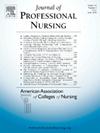Influence of nursing students' perceptions of clinical instructor caring on their professional values
IF 2.9
3区 医学
Q1 NURSING
引用次数: 0
Abstract
Background
Caring is an integral part of the nursing profession. The standards that guide nurses when caring for patients are the professional values which are learned throughout the career. In this process of learning, clinical instructors might play an important role since they have been identified as powerful role models for their students.
Purpose
This study aimed to examine the relationship between nursing students' perceptions of clinical instructor caring and students' professional values.
Methods
A cross-sectional study was carried out between January and July 2024. A total of 407 nursing students from the University of Santiago de Compostela (Spain), ≥18 years old of both sexes were invited to complete the Spanish version of the scales: Nursing Students' Perception of Instructor Caring scale (S-NSPIC) and Nursing Professional Values (S-EVPS).
Results
A statistically significant correlation was found between nursing students' perceptions of clinical instructor caring and students' professional values (r = 0.279, p ≤0.01), with the subscale “Confidence through caring” explaining 7 % of the total S-EVPS score.
Conclusion
Clinical instructors contribute to shape students' professional values, being instructors' expressive caring behavior a key factor that contribute to students' learning of professionalism.
护生对临床指导员关怀的认知对其职业价值观的影响
护理是护理专业的一个组成部分。指导护士照顾病人的标准是贯穿整个职业生涯的专业价值观。在这个学习过程中,临床教师可能扮演着重要的角色,因为他们被认为是学生强有力的榜样。目的探讨护生对临床指导教师关怀的感知与专业价值观的关系。方法于2024年1 - 7月进行横断面研究。选取西班牙圣地亚哥德孔波斯蒂拉大学年龄≥18岁的407名护生,分别填写西班牙语版护生导师关怀感知量表(S-NSPIC)和护理专业价值观量表(S-EVPS)。结果护生对临床指导教师关怀的感知与学生的专业价值观存在显著的相关(r = 0.279, p≤0.01),其中“通过关怀的信心”分量表解释了S-EVPS总分的7%。结论临床教师有助于学生专业价值观的塑造,教师的表达性关怀行为是促进学生专业学习的关键因素。
本文章由计算机程序翻译,如有差异,请以英文原文为准。
求助全文
约1分钟内获得全文
求助全文
来源期刊
CiteScore
4.80
自引率
8.00%
发文量
153
审稿时长
52 days
期刊介绍:
The Journal will accept articles that focus on baccalaureate and higher degree nursing education, educational research, policy related to education, and education and practice partnerships. Reports of original work, research, reviews, insightful descriptions, and policy papers focusing on baccalaureate and graduate nursing education will be published.

 求助内容:
求助内容: 应助结果提醒方式:
应助结果提醒方式:


